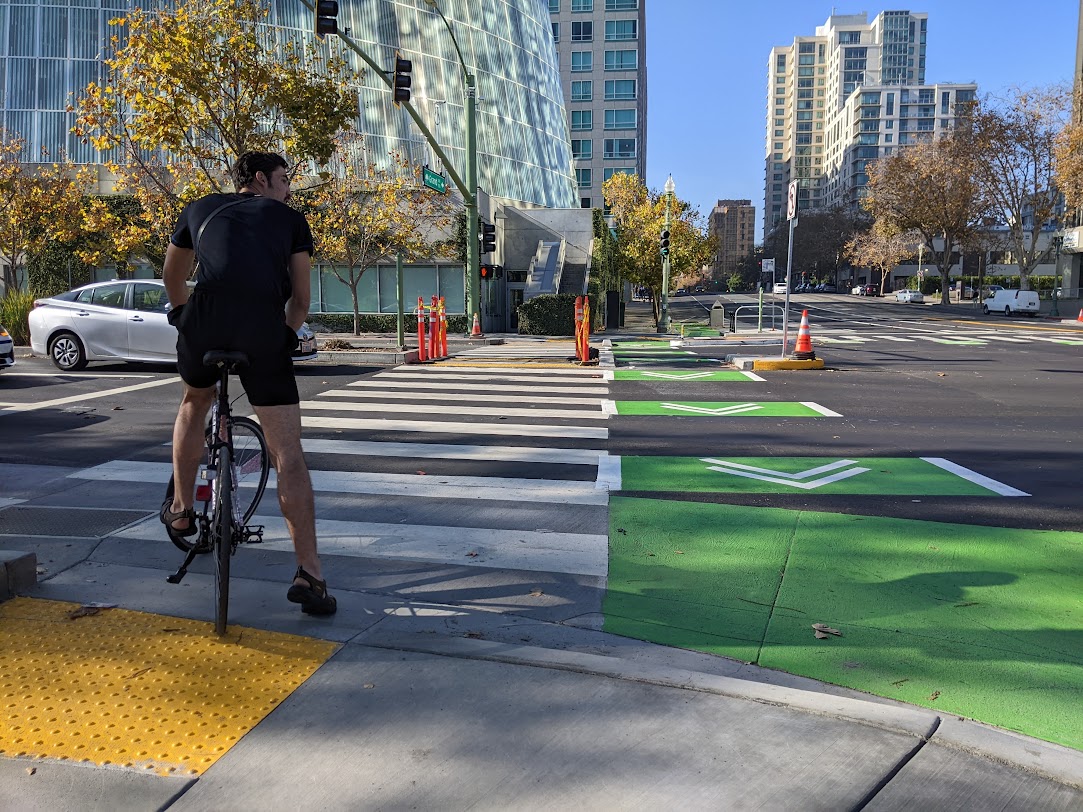Transit networks around the world beefed
up security measures in the wake of last month's fatal bombing of a
Moscow subway car, but the relevance of circumstances and tactics used
in overseas terrorist attacks to U.S. rail and bus security remains
unclear, according to a new report partly funded by the U.S. DOT.
 A police
A policeofficer monitors New York City subway commuters last month, part of
stepped-up security after the Moscow attack. (Photo: AP/CSM)
The
report was released in Marcg by the Mineta Transportation Institute
(MTI) at San Jose State University, which gets funding from the U.S. DOT
and the California state legislature. The MTI, named for the Bush-era Transportation
Secretary, is in the process of assembling the first database of
terrorist attacks specific to U.S. surface transport modes,
supplementing existing government statistics with its own research.
The MTI's latest report on its database analyzed more than 1,600
terrorist attacks on or threats to surface transportation -- only 15 of
which occurred in North America. Of those, four were directed at public
buses, three at bridges, and eight at trains.
Transit's lack of prevalence as a terrorist target in the United
States, according to the MTI, is due in part to the more widespread
public use of rail and buses in Asia, Latin America, and Europe. From
the report:
Most of the attacks take place in countries in which train or bus transportation is eitherthe primary means of publictransportation (e.g., in Israel) or, along with trains, a largepartof it, and in rural areas, the only public transportation.
Thisis far from the situation in the United States, where aviation is theprimary method of long-haul transportation, and with the exception ofhigh-density urban centers such as New York, Boston, and San Francisco,the automobile is the primary method of local transportation. Wheretrain or bus transportation is extremely important, it becomes anobvious terrorist target. Conversely, where it is not so important, itmay be a less likely target.
Even so, the MTI noted that transit remains in the sights of terrorist
groups seeking "soft targets," buildings or elements of infrastructure
that may not be as tightly guarded as government property but would
carry a risk of significant casualties. Recent attacks on transit in London, Madrid,
and Mumbai
"were considered major terrorist successes," the report's authors
warned. "Past success makes future attempts more likely."




